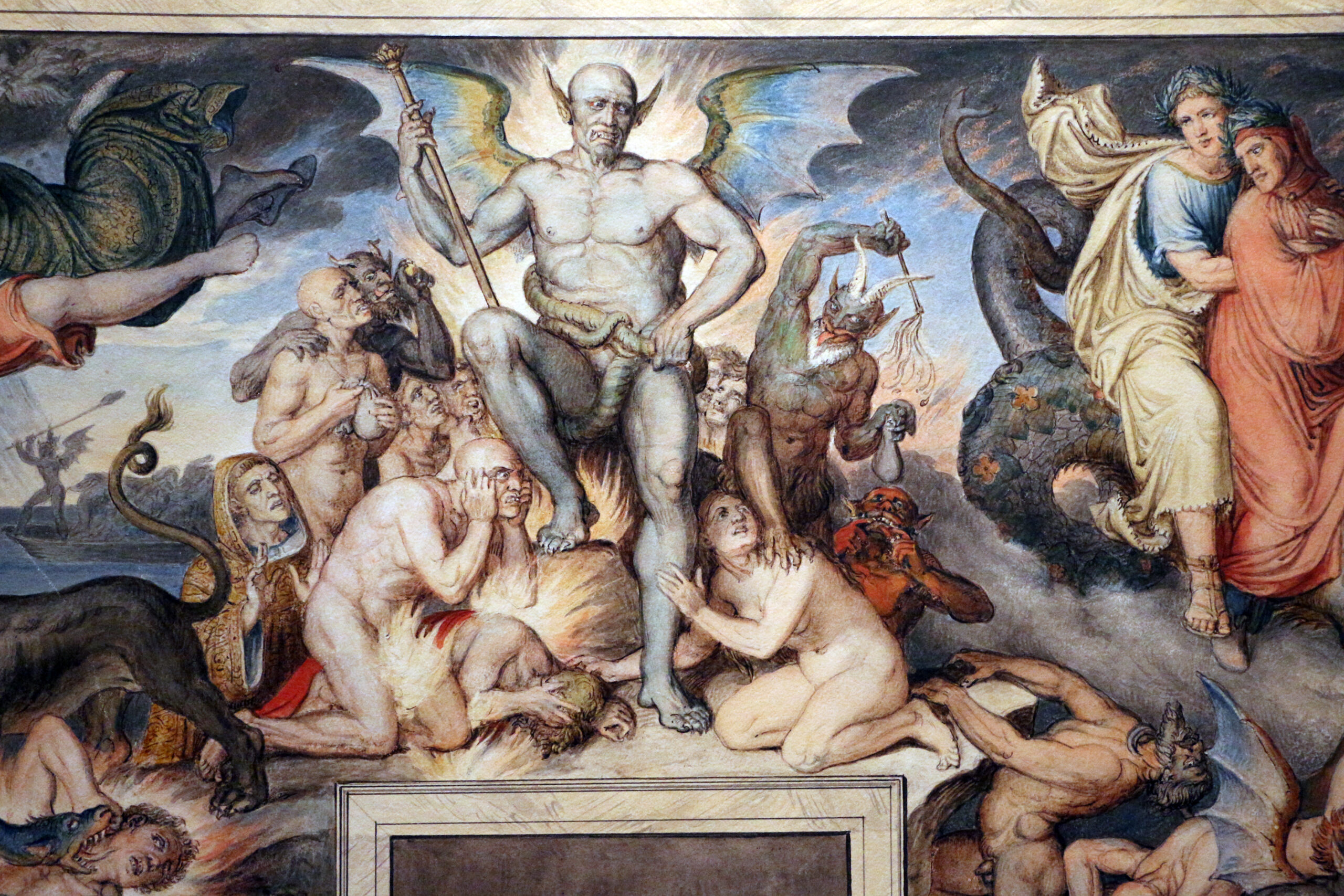Hell is unconstitutional

The Notepad of Michael the Great
"Hell is unconstitutional". Twenty years ago this statement cost the theologian Lucio Lombardi Vallauri teaching at the Catholic University of the Sacred Heart. On the other hand, the writer has nothing to lose, and for this reason he allows himself to insist: hell is unconstitutional because there is no proportion between an infinite punishment and a finite guilt. The argument that the offense is infinite because the offended is infinite, that is, God, would lead to considering every sin as infinite, which is obviously not possible. Furthermore, hell is unconstitutional because it is contrary to the feeling of humanity and does not provide for the re-education of the condemned. That is, it pays for an inescapable ethical and pedagogical failure. Reason that perhaps explains a deadly joke of Ennio Flaiano about our national character: "The hell that the Italian insists on imagining is a place where, for better or worse, one is with naked women and where with devils one gets involved 'agreement".
****
The "Vade retro Berlusconi dal Colle" that we have heard from many quarters in recent days is basically nothing more than a sort of transliteration of the canonical formula used by exorcists in their rituals. Of course, the Knight is not Satan, who believes himself to be "the prince of this world" (but who knows, maybe he believes a little). However, as a sower of discord and lies, his enemies evidently seemed worthy of being compared to the devil, who is the liar par excellence (the term devil derives from the Greek verb "diabàllo", which means to divide, create – through deception – enmity between men and between man and God).
Yet, due to its Franciscan strength and simplicity, I would not have neglected the exorcism that the poor man of Assisi taught Brother Ruffino assiduously tempted by the devil who, in the figure of Christ, urged him to abandon the ascetic path. Since prayers and fasting were not needed, Francis advised him what he should say to the devil if he came back to tempt him. Ruffino obediently put his teaching into practice. Here is the devil who says to him: “What good is it for you to grieve while you are alive, and then when you die you will be damned? And suddenly Brother Ruffino replies (with the words suggested by the poor man of Assisi): Open your mouth; mo 'you caco. Of which the outraged devil, immediately departed with so much storm and emotion of the stones of Mount Subasio which was high up, that for a large space the ruin of the stones that fell downwards was enough "(" I Fioretti di San Francesco ", New Town, 1999).
****
In 1822 Gioacchino Rossini paid a visit to Beethoven in his home in Vienna, famous for being a hovel with a broken ceiling and with a pital always on the piano. After an exchange of views on the musical trends of the time, the genius from Bonn dismissed him inviting him to compose only comic operas in the future because the Italians were not made for serious opera. Even if seven years later the genius of Pesaro would have blatantly denied it with the “Guglielmo Tell”, a masterpiece of the romantic theater, the anecdote is significant. In fact, it attests to the circulation in the cultural milieu of the nineteenth-century Habsburg empire of a polemical idea of our national character, deaf to the depths of the drama. After the defeat of Hitler, in "Doctor Faustus" (1947) Thomas Mann resumed this representation of the prosaic and "carefree" soul of Aeneas' descendants, contrasting it with that of the German people, fearless in pursuing their catastrophic destiny to the end.
In his “Sad and civil memories” (Einaudi, 2001), Cesare Garboli has dismantled in a couple of masterful pages the mythology of the Teutonic described – in terms now Dionysian now Nibelungic – by the great novelist from Lübeck. There is no doubt, however, that this is how the countless travelers who came down from the north to enjoy the sea and the sun that they envy us so much have seen us, and still do: politically cynical but weak, sentimental, festive; prone to acting, singing, laughing. In short, like the homeland of Machiavelli for those who have studied, or of Pulcinella and Arlecchino for the illiterate.
However, it is never possible that this really is the country that suffered the tragedy of the Mussolini regime and that today sees in the field for the presidency of the Republic a gentleman for whom anti-fascism has become a dust, the dandruff that sweeps itself away from ' Do I live before a walk? The question is not idle, especially in times when the ancestral gregarious instinct of the majority of Italians risks being awakened by a Knight, perhaps without fear but with some stain, who boasts of not giving a damn about the past. Even politics without history, Alessandro Manzoni observed, is like a blind man without a guide to show him the way. It is only to be hoped, when the quirinal dances open next Monday, that the orb dancers will open their eyes.
This is a machine translation from Italian language of a post published on Start Magazine at the URL https://www.startmag.it/mondo/inferno-e-incostituzionale/ on Sat, 22 Jan 2022 06:20:00 +0000.
